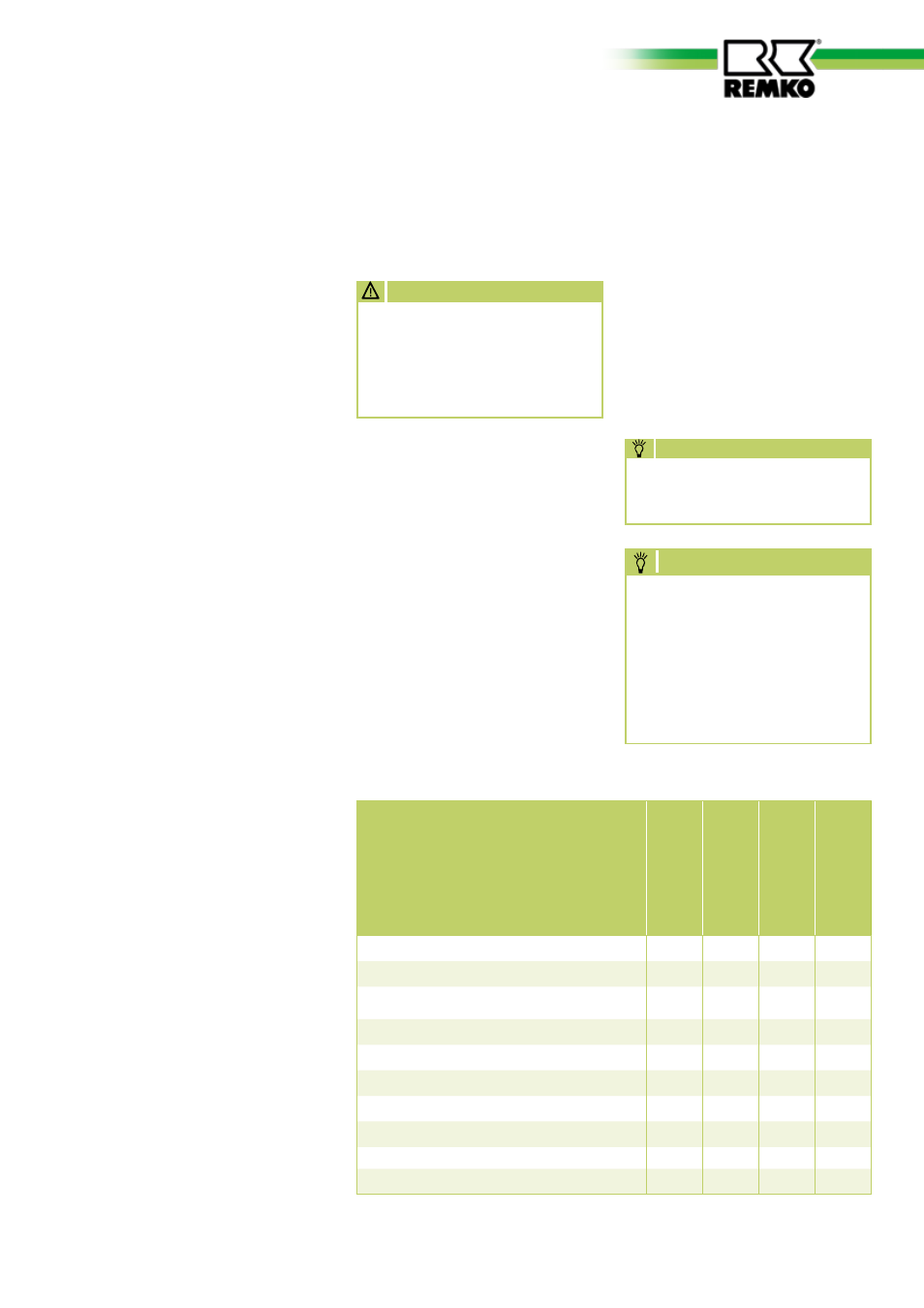Shutdown, Care and maintenance – REMKO MD 261 User Manual
Page 13

Shutdown
Temporary shutdown
1. Allow the indoor unit to run for
2 to 3 hours in air circulation
mode or in cooling mode at the
maximum temperature setting
in order to remove any residual
moisture from the unit.
2. Shut down the unit using the
remote control.
3. Switch off the voltage supply to
the unit.
4. Cover the unit as far as possible
with plastic foil in order to
protect it from the influences of
weather.
Permanent shutdown
Ensure that equipment and
components are disposed of in
accordance with local regulations,
e.g. through authorised disposal
and recycling specialists or at
collection points.
Contact REMKO GmbH & Co. KG
or your contract partner for a list
of specialist companies near you.
Care and maintenance
Regular care and maintenance
serves to ensure trouble-free
operation and long service life of
the unit.
Care
■
Ensure the indoor unit and
outdoor component are
protected against dirt, mould
and other deposits.
■
Clean the equipment using a
damp cloth. Do not use any
caustic, abrasive or solvent-
based cleaning products. Do
not use a jet of water.
■
Clean the fins on the indoor
unit and outdoor component
prior to long shutdown periods.
Maintenance
■
It is recommended that
you take out a maintenance
contract with an annual service
from an appropriate specialist
firm.
This ensures the operational
reliability of your equipment!
TIP
Prior to performing any
work, ensure the equipment
is isolated from the voltage
supply and secured to prevent
accidental switch-on!
CAUTION
Type of task
Checks/Maintenance/Inspections
Commissioning
Monthly
Six-monthly
Yearly
General
•
•
Measure voltage and current
•
•
Check compressor/fans are functioning
correctly
•
•
Check fan is functioning correctly
•
•
Dirt on liquefier/vaporiser
•
•
Check refrigerant fill quantity
•
•
Check condensation drain
•
•
Test insulation
•
•
Check moving parts
•
•
Sealing test for refrigerant circuit
•
•
The statutory regulations
require an annual sealing test
for the refrigerant circuit in
relation to the refrigerant
filling level. The inspection
and documentation is to be
carried out by corresponding
specialist engineers.
NOTE
13
